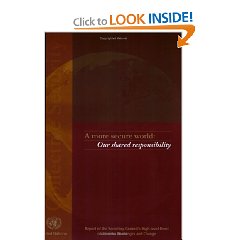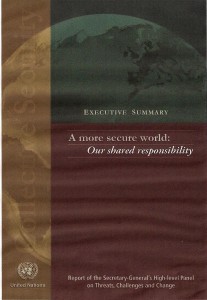 Recommended by Micah Sifry, Final Review–McCain Benefits, May 3, 2008
Recommended by Micah Sifry, Final Review–McCain Benefits, May 3, 2008
Tex Sample
Micah Sifry in Spoiling for a Fight: Third-Party Politics in America recommends this book. This book is a seminal reference, a vital, urgent reading for anyone who wishes to do the right thing for our massive blue collar population that has been betrayed by both parties (see Running on Empty: How the Democratic and Republican Parties Are Bankrupting Our Future and What Americans Can Do About It.
Here are highlights from my fly-leaf notes:
+ Our society has structured inequality built in at all levels, and the blue collar and working poor populations will NEVER climb out of their pit unless we minister to them in an active manner.
+ The focus of the blue collar worker is the neighborhood, and a web of favors given and received, favors that define not just a community, but a covenant of community. See Off the Books for more on this.
+ Our “culture” has managed to make every individual that is structurally repressed feel guilty for not being able to rise above their circumstances because our churches and our state preach freedom of opportunity, but the REALITY is that the upper class web of connections trumps lower class striving every time.
+ The deindustrialization and deskilling of the economy (Bill Clinton's signal mistake, apart from being inept at getting single-payer health care where the working class would be the principal beneficiary) has deepened the disadvantages of race and gender in America.
+ The author does a superb job–truly a scholarly and responsible job–of properly reviewing applicable literatures and offering proper citation in text, not just endnotes, of a rich buffet of practical and intellectual contributions by others.
+ He discusses five types of blue collar groups:
– Blue Collar Winners, a threatened species
– Blue Collar Respectables, want family, school, and church to be in harmony, conformists, a morality of repression, lowered social norms make it harder to be “respectable,” and there is no social mobility
– Blue Collar Survivors, trapped like inmates, a daily struggle to stay even with life in the face of multiple challenges
– Blue Collar Hard Living, heavy drinking, marital instability, toughness, political alienation, rootlessness, present time orientation, strong sense of individualism
The author's greatest contribution is his full exploration of how a pastor in a blue collar neighborhood cannot think of themselves as being on the pinnacle of a pyramidal organization between the community and God, but rather as a member at the base, part of a web of giving and love, dignity and local empowerment. This book should be required reading for EVERY pastor of ANY faith. It should also be required reading for every Precinct Captain for any political party, ideally a third party such as the Libertarians or Greens. This book is a handbook for connecting, empowering, and enriching at the local level.
The author concludes that the “ward heeler” is the best model, an individual that is constantly moving throughout the community, touching each person and especially the many that do not come to church, offering favors with love, investing in each individual. I am MOVED by this book. This is pastoral reference A, and it is touching in its understanding while illuminating in its scholarship.
Citing Andrew Greeley the author notes that ethnic politics is not about ideas, but rather about intuitive brokering among a broad diversity of intersecting interests. He goes on to cite the three weaknesses of ethnic politics: it depends on the group being structured; it overlooks small but explosive groups; and it fails to engage the intellectuals.
This is where I experience two huge epiphanies (Republican word for Aha!):
1. At the blue collar level, the author tells us, patriotism is not just a given, it is an EXISTENTIAL deeply rooted part of being. This helps me understand why Reverend Wright's intemperate (but accurate) depiction of the USA and the crimes done “in our name” would cause anger among the white blue collar population. America right or wrong is a tangible value.
2. At the national level, any candidate who would lead America must trisect three groups: money, brains, and brawn. I do not see any candidate, although John McCain appeals to me if he can avoid Leiberman or Rice as a Vice President (I would recommend to him the protagonists in The Average American: The Extraordinary Search for the Nation's Most Ordinary Citizen, that is doing that. All three of the candidates are doing platitudes to the public with secret handshakes behind closed doors with the money people, and all three are completely neglecting the intellectual substance: we are hated or distrusted around the world; we are doing nothing to eradicate the ten high level threats to humanity; we are bankrupt as a Nation (financially, morally, culturally, and intellectually), and “there is no plan.”
Read my reviews of the following for additional perspective on how we have betrayed the lower two thirds of the population:
The Working Poor: Invisible in America
Off the Books: The Underground Economy of the Urban Poor
I read this book while trying to see if a third party candidacy is still viable. In that context:
1) I have written off Obama. His rejection of Reverend Wright is the final nail in his political coffin this time around, he has become, as one Reverend of color put it, the “House Negro.” See Obama – The Postmodern Coup: Making of a Manchurian Candidate.
2) Bloomberg (see my review of Bloomberg by Bloomberg) needs to understand the difference between transpartisan ship and the two-party organized crime and spoils system, and then he needs to put his integrity on the line and go for the full enchilada.
Other reform books that have impressed me:
The Revolution: A Manifesto
Don't Start the Revolution Without Me!
Society's Breakthrough!: Releasing Essential Wisdom and Virtue in All the People






